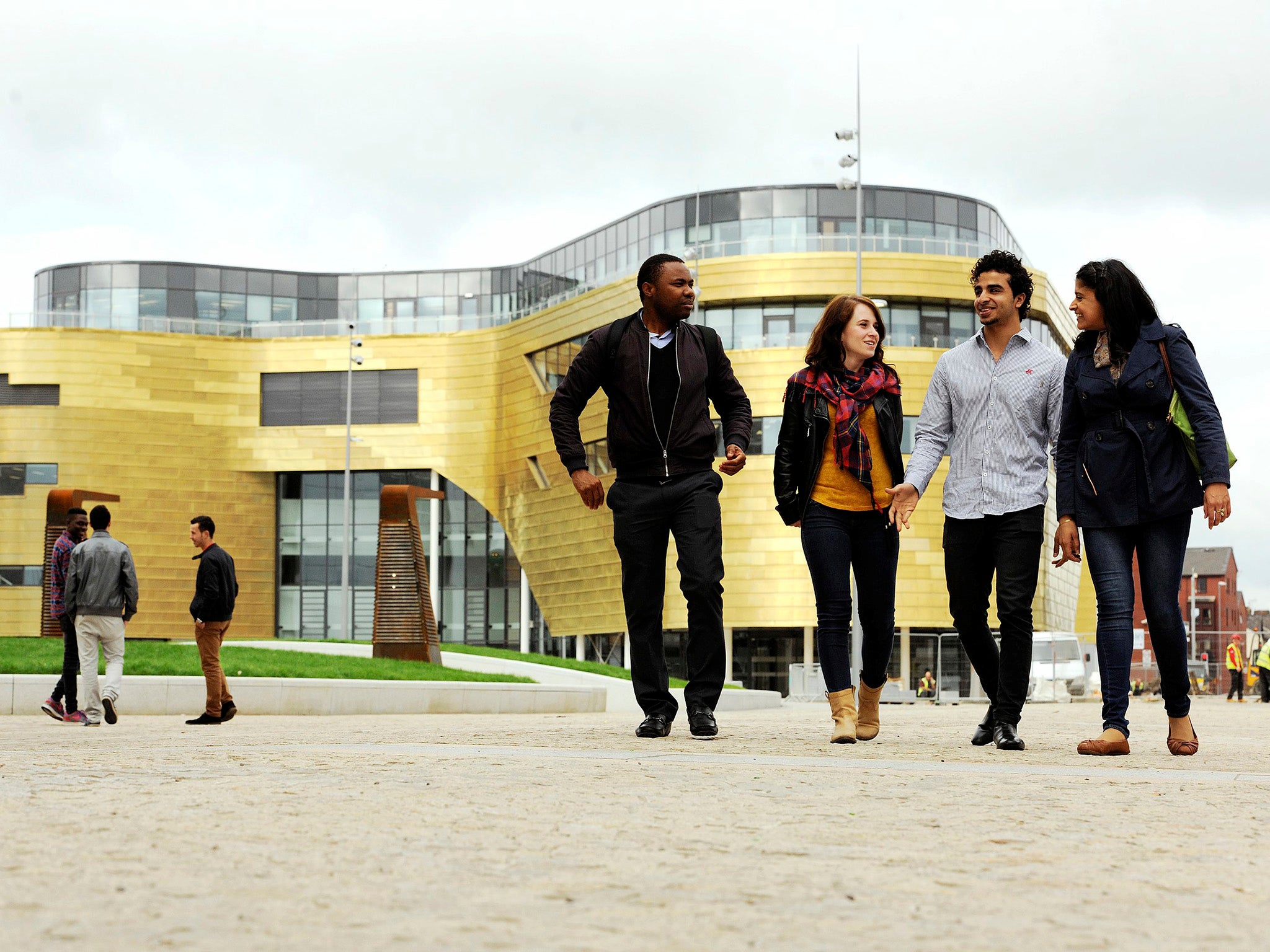The Tories shouldn’t overlook the valuable contributions universities make to ‘left behind’ communities
In many of the constituencies that Johnson will need to retain if he is to win the next election, the local university has been one of the few beacons in a bleak few decades, writes Ed Dorrell


I run a lot of focus groups in a lot of places. There are more than a few moments that live long in the memory, but one came specifically to mind this week when I was thinking about the renewed political interest in the slightly nebulous idea of “civic pride”.
This focus group took place in the northeast. I was talking to a bunch of working-class non-graduates – the new Tories if you will – about local education when one 58-year-old semi-retired ex-steel worker from Middlesbrough turned to me and said “the local university is the pride of Teesside”.
It was not, I must be honest, exactly what I was expecting. It didn’t reflect the stereotypical "town and gown" divide. Indeed, my new friend was not alone; the rest of the participants soon fell in behind him. They were, to a man and woman, very supportive of the contribution that the University of Teesside made to their community. They knew more than might have been expected about its research strengths, its work with local communities and its economic impact on the life of their town.
This represents a challenge to Boris Johnson’s government. Its instincts are pushing it towards conflict with a large part of the higher education (HE) sector, yet in many places, the universities it wants to take down a peg or two could be – and perhaps should be – central to its “levelling up” agenda.
There are a few different things driving it towards a clash with the HE sector. Firstly, many on the right of the Conservative Party have a knee jerk reaction to academics and lecturers pillorying them for Brexit.
They believe, not totally without justification, that academic common rooms are stuffed with Remainers with little respect for the result of the EU referendum, or those who campaigned to make it happen. “We throw huge amounts of public money at them only to see them pop up on Channel 4 News night after night slagging us off,” goes the argument.
A significant number of Tories also see universities as the front line in the “culture war’’ that many, on the left and right, are so keen to foment. Disputes over free speech on campus, historic statues and the names of libraries are totemic issues for them.
Less prosaically, the current direction of Tory education policy thinks that there is a need to rebalance post-18 education towards skills and training delivered through further education colleges and away from universities. For reasons of limited public spending, but also because of the cultural issues they have with the HE sector, Conservative ministers see this as a zero-sum game. If colleges are to win financially, universities must lose.
I expect much of this to come to a head in the comprehensive spending review later this month.
Conservative instincts tell them that on these issues, their new voters in the “red wall” will be with them. But as our Teesside focus group suggests, this might just be a misjudgement.
In many of the constituencies that Johnson will need to retain to win the next election, the local university has been one of the few beacons in a bleak few decades. And many of the voters that he will need to lend him their support know lots of people – often their children, nieces and nephews – who have graduated from them. They respect their local universities and have little or no interest in the so-called culture war.
These attitudes won’t be echoed in all towns and cities and, certainly, not all universities will have the reputation seemingly enjoyed by Teesside. But if ministers are serious about levelling up, and about encouraging a new sense of civic pride in those “left behind places”, then they need to think carefully before they undermine the very institutions that are best placed to help them deliver it.



Join our commenting forum
Join thought-provoking conversations, follow other Independent readers and see their replies
Comments